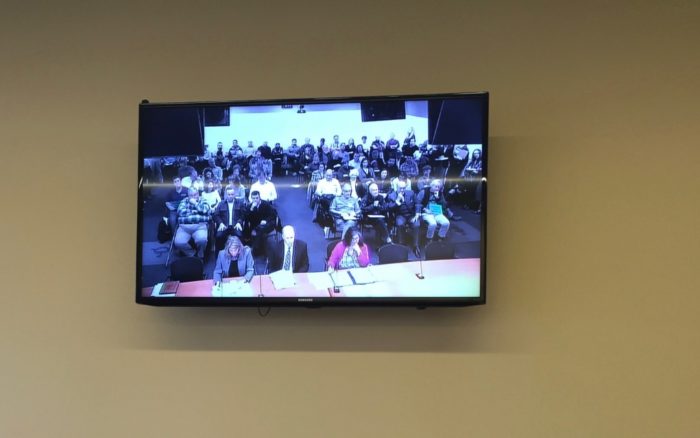Jung and the Board of Supervisors
Thoughts on what Carl Jung might have to offer Napa Valley
The Napa County Board of Supervisors’ room was packed, standing room only, and the overflow rooms, overflowing. Police in uniform strutted back and forth in the hallways and guarded doorways. I overheard a county official tell one of the police that their uniformed presence changed the feeling in the crowd.
I felt an edginess I didn’t usually feel at these meetings. I wondered if it was the nature of the group that day or if it came from the San Bernardino shootings last week. At the beginning of the meeting, Chair Diane Dillon asked for a moment of silence for the county employees shot in the terrorist incident last week. She said that she had been co-chairing a meeting with a San Bernardino official in LA last week when the news came of the shooting. She was in London at the time of the Paris attacks two weeks before.
Watching the televised meeting in the packed, standing-room-only lobby of the county building, I began to wonder for our safety. Fear is infectious!
But what was to come bothered me more. The topic of the day was the Agricultural Protection Advisory Committee’s (APAC) recommendations to the Board of Supervisors (BOS) on wineries and vineyards in the Valley, recommendations that grew out of 10 meetings of 17 representatives appointed by the BOS—representatives, I might add, weighted in the direction of the wine industry. Since the March 10, 2015 meeting when 400 people filled the auditorium at Napa High School to comment with the alarm on the overgrowth of the wine industry, the Board of Supervisors has been paying close attention to these larger considerations in our valley .
Most of the first four hours of public comment was taken up by workers of what seemed like one or two wineries, many arriving an hour early to get the “reserved” seats in the main room, although there were also a handful of disgruntled winery owners. Vineyard workers needing translators and cashiers at a wineshop expressed anxieties about losing their jobs if the regulations were adopted. Did these people have any idea what was being presented to the BOS and why? I doubt it. It was rumored that a large winery owner had closed his establishment for the day and encouraged his workers to come make public comment, skewing the nature of the discussion and preventing any real addressing of the issues at hand. And who placed green sheets on all the chairs of the main room with signs saying “Support Napa County Ag”. This was true in the overflow rooms as well. Although the culprit wasn’t known, his intention of usurping “green” —and saving the seats— was. Any of us arriving at 9 am had no place to sit unless we took one of these (and we did).
Obviously, the wine-industry is threatened. The recommendations have to do with enforcing permits, limiting variances, and limiting new wineries in the Ag Preserve and Ag Watersheds. I personally was verbally accosted in the hallway outside the main room by an owner of a known winery who had noticed my Vision 2050 badge. “You have cost me $500,000,” he raged. “Plus penalties!” “Plus penalties?” I asked. Really! “I don’t think we can blame Vision 2050 (who has spearheaded these discussions) for your penalties!” But we talked. Yes, he feels the wine industry has made the valley and I should only be grateful (and obviously continue to give them full reign), but we did have a discussion, and the heat went down between us.
The space for the business at hand with the BOS got hijacked that day. It was a misuse of the democratic process by a few people who wanted to use their power to protect their private interests by stopping discussion of the real issues. Was it a filibuster? —or the creation of a straw man, as my neighbor suggested? Yes, it is happening everywhere. Our Congress is a horrible example. True discussion is prevented by the misuse of power to try to get what we want, and the common ground, the common good, usurped. The opposites become more extreme, and the tension grows. Violence threatens.
One can only hope we find the space within ourselves to listen to the other, even when we disagree. Psychologist Carl Jung stated that it is only when we can hold the opposite view along with our conscious view, that we can reach resolution, resolution that is neither opposite but something entirely new. We need this in our valley, not any one group winning, but perhaps an establishment of the common good.
